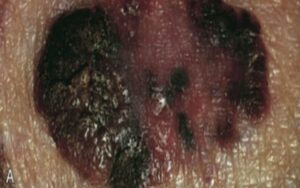HOPE, DISAPPOINTED?.
Breast cancer is the most frequently diagnosed cancer in the world. Chemotherapy, endocrine therapy and HER2-targeted therapy, despite still breast cancer recurrence and metastases continues to be the biggest challenge. The immune response against tumor cells by activating the patient's immune to create cancer vaccines or Bu response it seeks to strengthen. Cancer vaccines, which is seen as an extremely attractive option, until now, been disappointing. Different types of breast cancer vaccines in clinical trials were evaluated, but none has not led to significant benefits.
Immunotherapy is a treatment method that allows you to fight with cancer cells and activates the immune system. Immune-based therapies are divided into passive and active. Passive methods are targeted therapies. Active immunotherapy, vaccines are being tested through. A tumor antigen vaccine is the use of peptides derived from the method of producing the traditional. DNA-based and dendritic cell-based vaccines that was introduced new methods in this area.
Adjuncts used in vaccine production, are substances that help to increase the immune response generated against the antigen. Created adjuncts used in vaccination against infections, similar to the tumor vaccine adjuvant substances are used. Most adjuvant, the slow release of antigen, antigen presenting cells, dendritic cells and macrophages, the proliferation of helps. Granulocyte macrophage colony-stimulating factor (GM-CSF) is a cytokine that is widely used as adjuvant in vaccines for breast cancer.
Vaccines, anti-HER2 monoclonal antibodies or immune checkpoint blockade in conjunction with new technologies such as applied again, with a glimmer of hope appeared.

Breast cancer immunization therapy, there are several theoretical advantages compared to conventional chemotherapy and targeted therapies:
- Vaccines can be better tolerated,
- Has a low order of toxicity,
- Tumor-specific response due to long-term immune response can produce.
Thanks to vaccines produced antigens that are not associated with HER2, HER2-negative immunity against tumors can be achieved.
Vaccines with immune responses can be initiated successfully. However, in vaccinated patients prognosis ( prediction of the progression of the disease ), usually associated with the degree of immune response. Immunity decreases over time. This lead to recurrence. A possible explanation for negative results so far can be. Effective vaccines induced by anti-tumor immunity will provide significant benefits in survival are not as long lasting as that.
Anti-tumor immune response is disappearing why so early?
Insufficient vaccine formulas, developing immunity against specific tumor antigens that can suppress immune tolerance and tissue micro-environment, anti-tumor immune response are causing the extinction of early.
The immune system is non-self antigens in autoimmune diseases preventing and effectively eliminates a very important system. Despite the various obstacles encountered in the development of a vaccine for breast cancer, autologous immune systems to fight cancer that can be raised the idea was never abandoned.
Although the current results are not satisfactory clinical studies for evaluating breast cancer vaccines, cancer immunology deepens the understanding of as, and it is believed that in the end will lead to more activity of the new strategy.
Source :
Breast cancer Vaccines: Promising or Disappointing? – Frontiers In Immunology





